 During the late 1800’s, two inventors had almost identical ideas for this AMAZING new transmitting device called “The Telephone.”
During the late 1800’s, two inventors had almost identical ideas for this AMAZING new transmitting device called “The Telephone.”
You can probably guess who ONE of those inventors was.
Alexander Graham Bell, of course.
But here’s a name that you might have heard before: Elisha Gray.
See, he actually recorded his schematics the telephone about six weeks before Bell did.
SO, YOU GOTTA WONDER: “Why is it that nobody remembers that guy?”
Well, Elisha Gray received a lot of criticism for his telephone invention.
Believing speech transmission to be a waste of time, the top technical journal of the industry, The Telegrapher, put down his idea.
“It is NOT a new idea,” claimed the publication, “…the telephone is an invention with no direct practical application.”
According to the (awesome) book They All Laughed, even Gray’s colleagues were unimpressed.
So, under the weight of criticism, he slowly started to give up on the idea that the telephone was a moneymaking enterprise.
Now, he didn’t give up totally. But he DID continue his research with heavy doubt.
Meanwhile, a determined young man named Alexander Graham Bell was still cooking up his idea for the same invention.
AND HERE’S THE CRAZY PART: although he had no affiliation with Gray, Bell’s initial sketch of the telephone was almost identical to his counterpart’s.
SO, YOU (STILL) GOTTA WONDER: “If Elisha Gray had the idea for the telephone first, why does Alexander Graham Bell always get credit for the invention?”
Well…
After constant legal struggle between the two inventors, the idea of the telephone was eventually deemed fair game for both parties.
So, on the morning of March 7th, 1876, Alexander Graham Bell walked into the Patent Office and secured his name as the official inventor of the telephone.
AND HERE’S THE BEST PART: later on that same afternoon, only two hours after Bell walked out with his patent, guess who walked in the door hoping to do the same thing?
You guessed it: Elisha Gray.
Too little, too late!
See, Elisha Gray didn’t show up in time, because he didn’t BELIEVE as much as Bell did.
He allowed criticism to stunt his creative momentum.
And as a result, he forfeited the opportunity to be recognized as one of the most influential inventors in modern history.
Two hours. That’s all it took.
What are YOU waiting for?
LET ME ASK YA THIS…
What is your biggest creative regret in 2007?
LET ME SUGGEST THIS…
Post it here!
* * * *
Scott Ginsberg
That Guy with the Nametag
 Consultants. Bah.
Consultants. Bah.
No systems. No formulas. Just someone who listens, asks KILLER questions and facilitates creative breakthroughs.
Rent Scott’s Brain today!

 (Read part 1 of this post series
(Read part 1 of this post series  Enjoy this post?
Enjoy this post? Let’s say you publish one article.
Let’s say you publish one article.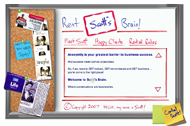 Enjoy this post?
Enjoy this post?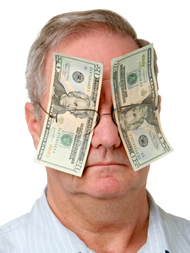 The other day I saw an advertisement for this intense, three-day Wealth-Building Seminar.
The other day I saw an advertisement for this intense, three-day Wealth-Building Seminar. Enjoy this post?
Enjoy this post? (To read part 1, click
(To read part 1, click 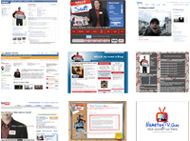 Are you a friend of
Are you a friend of  (Read part one of this series
(Read part one of this series 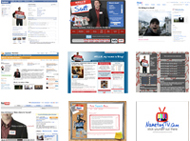 Are you a friend of
Are you a friend of  1. You get (really) good at writing by writing a lot.
1. You get (really) good at writing by writing a lot.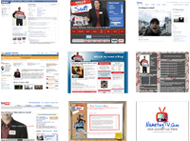 Are you a friend of
Are you a friend of  I was walking down the Las Vegas Strip one day when I saw the coolest t-shirt of all time.
I was walking down the Las Vegas Strip one day when I saw the coolest t-shirt of all time.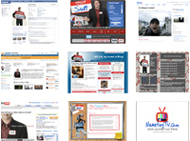 Are you a friend of
Are you a friend of  I’ve been writing books since I was 21.
I’ve been writing books since I was 21.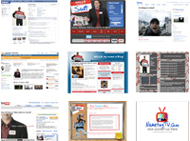 Are you a friend of
Are you a friend of  1. Hang with it. Keep daily appointments with yourself. Clear it. Set aside time to just think. Encourage your mind to get better by doing creativity exercises.
1. Hang with it. Keep daily appointments with yourself. Clear it. Set aside time to just think. Encourage your mind to get better by doing creativity exercises.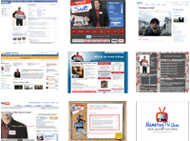 Are you a friend of
Are you a friend of